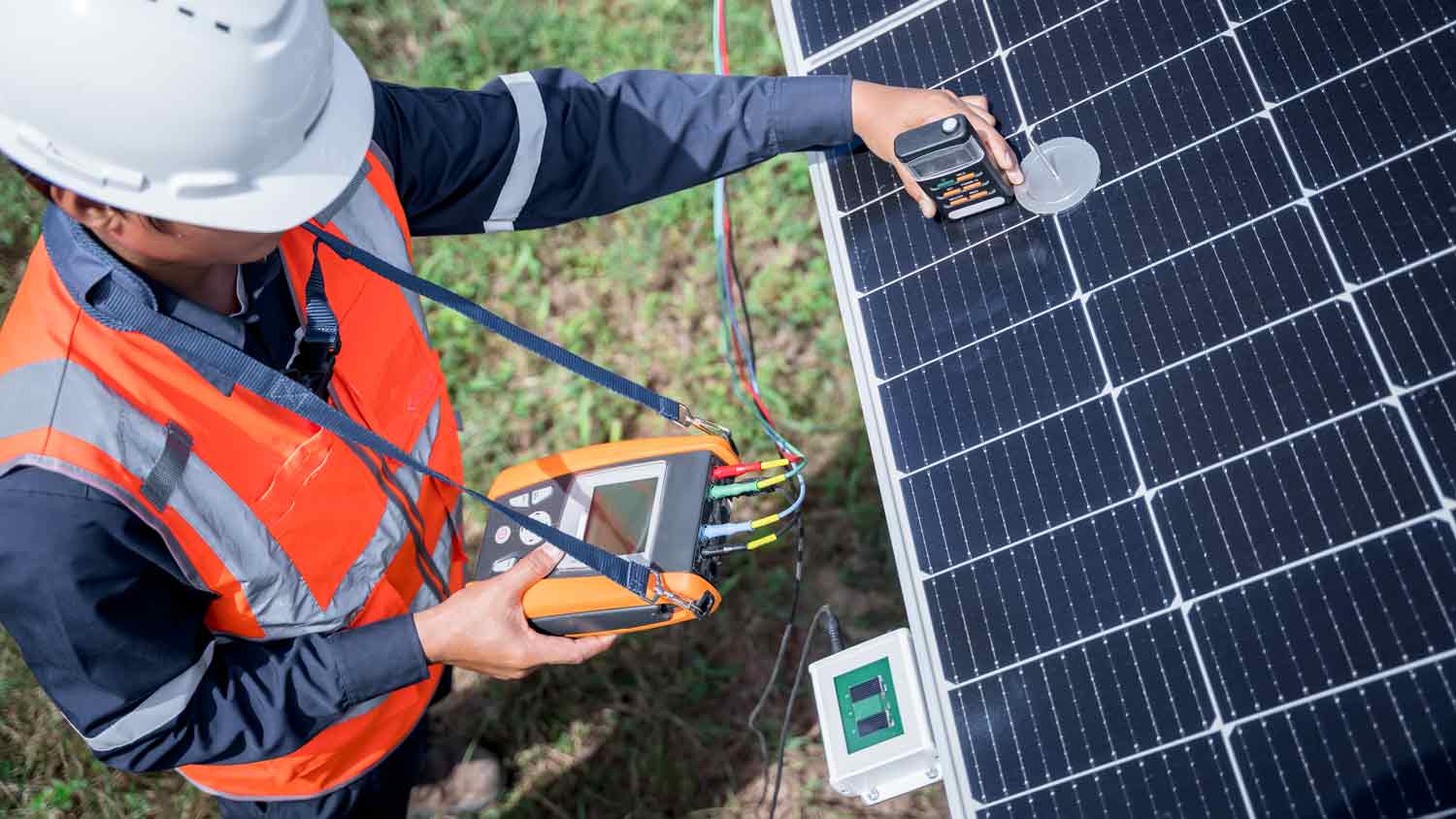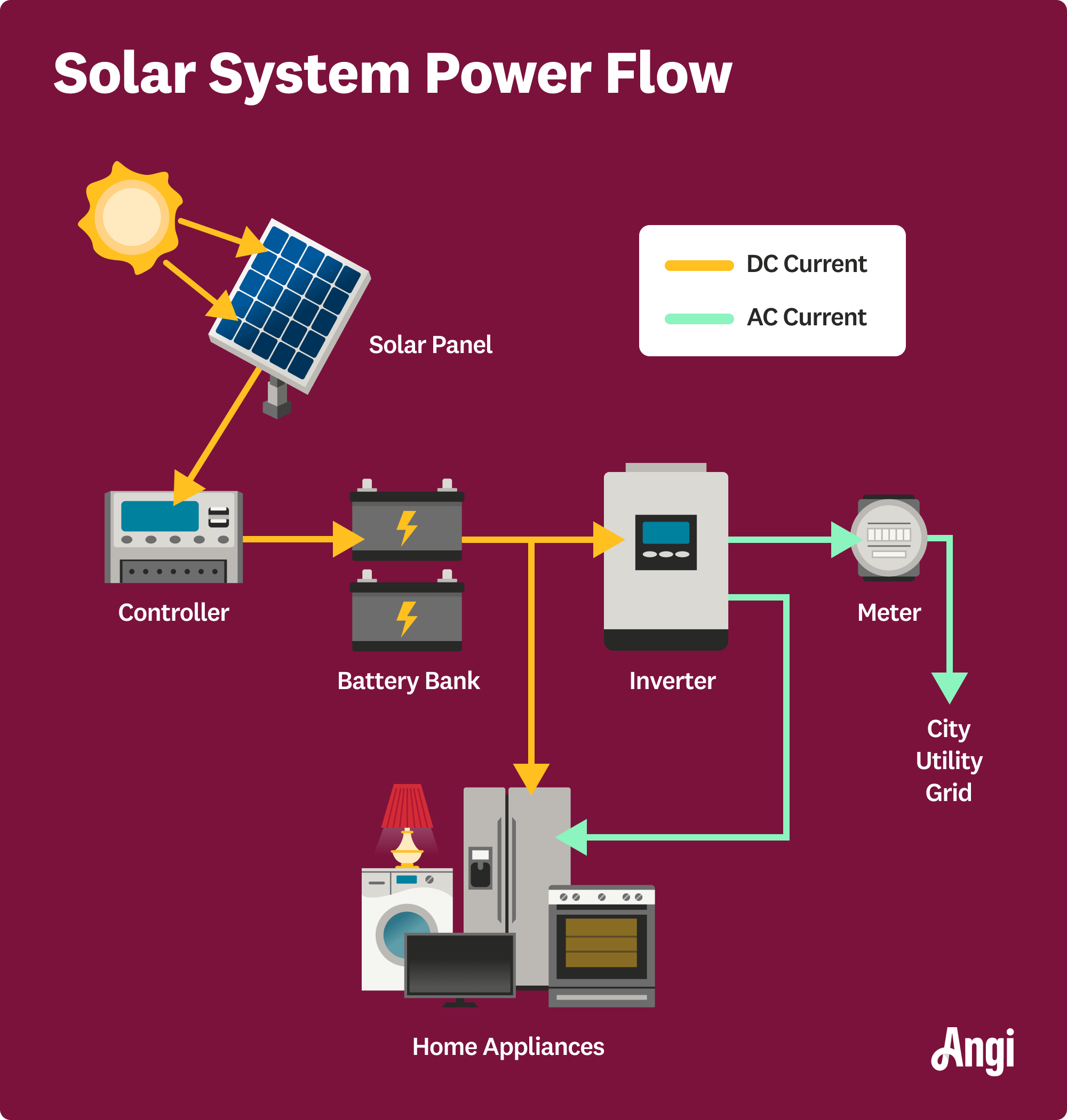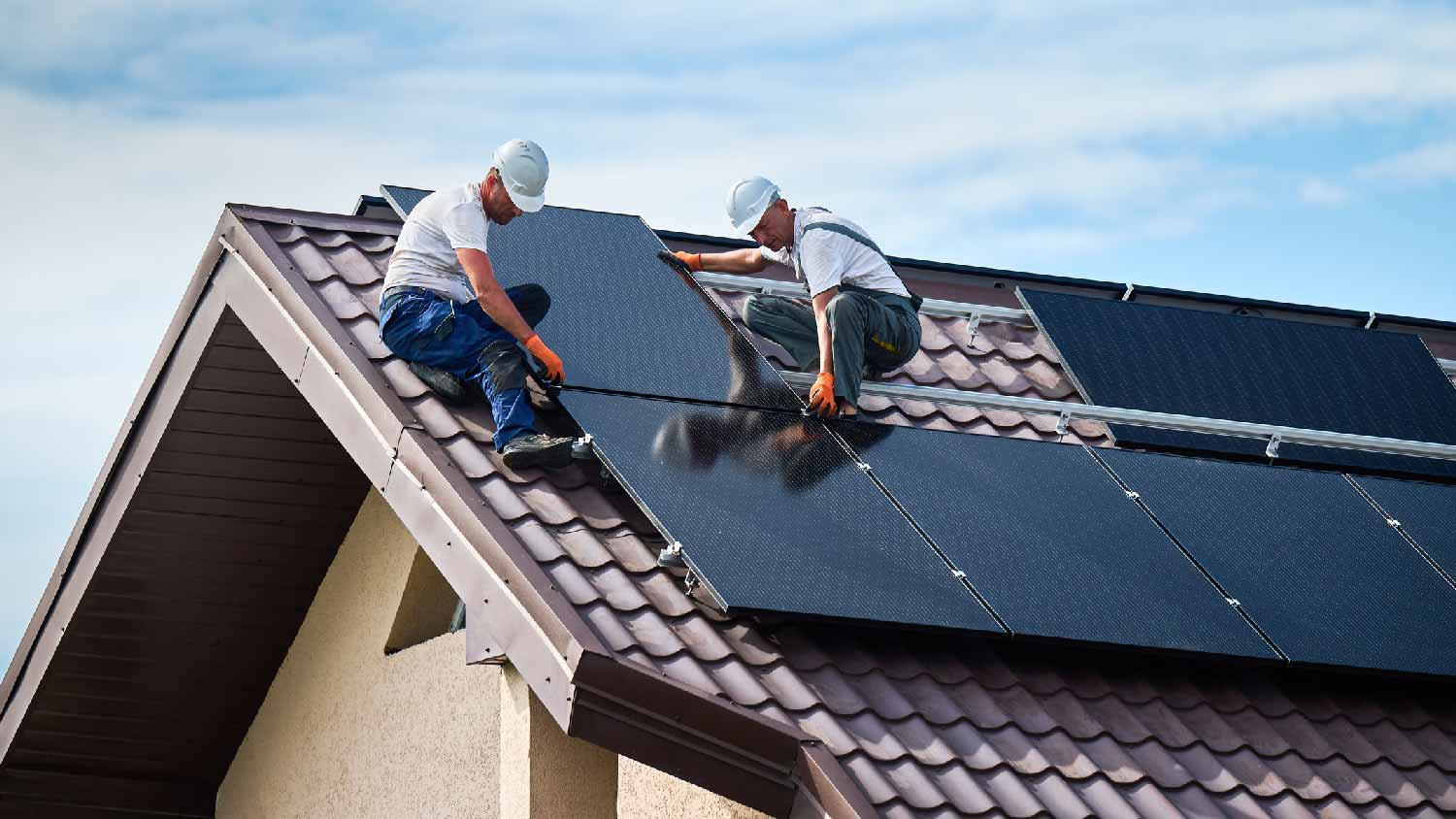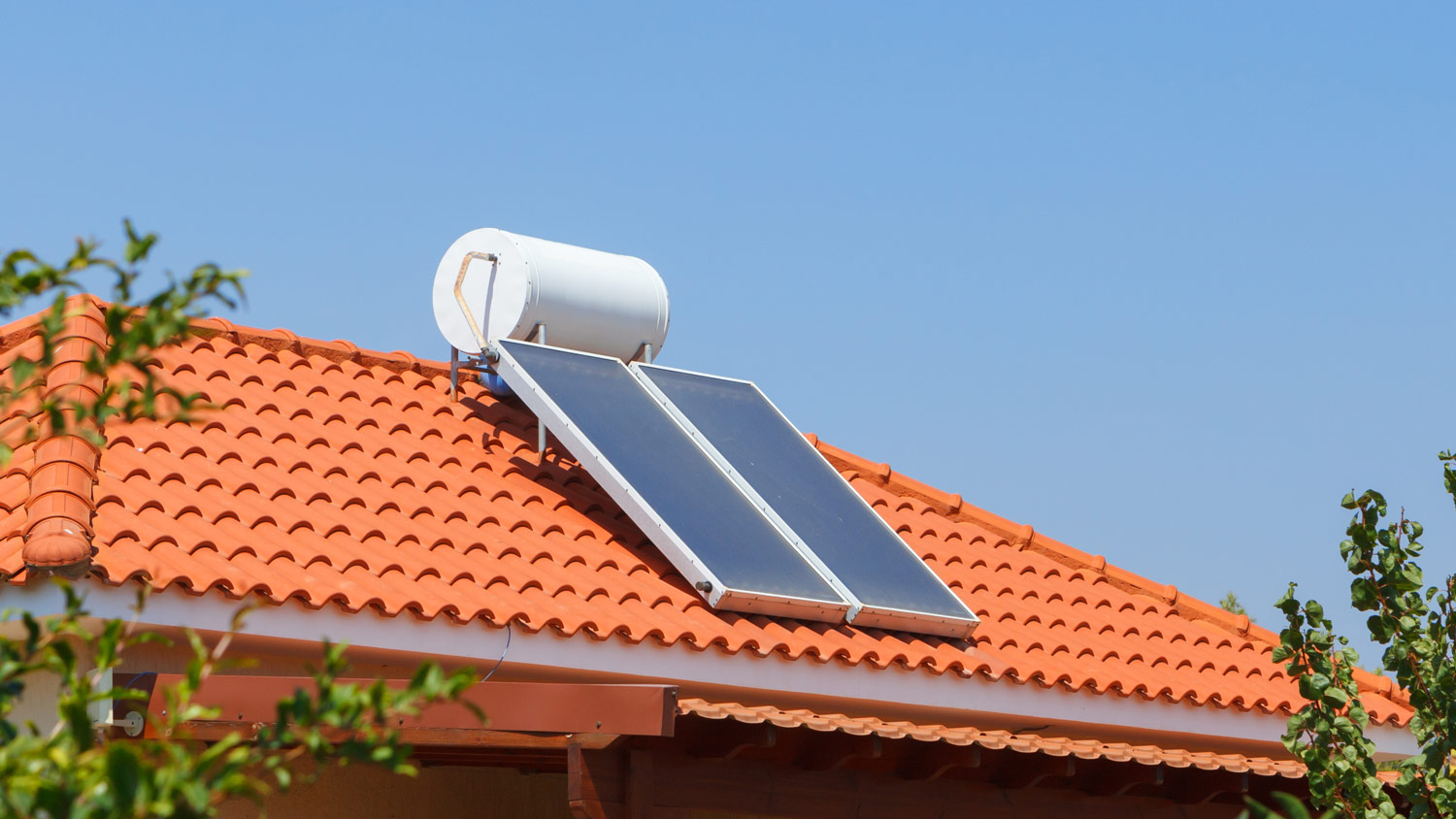
Discover the average solar panel inspection cost, what impacts pricing, and how to save. Get expert tips to keep your solar system efficient and safe.
Capture the sunlight and save it for later


Solar batteries store excess solar energy from solar panels so you can use it later.
Batteries can power your home when panels aren’t producing enough or during a power outage.
Solar batteries will add to the total cost of your solar panel system but allow you to be more energy-independent.
This solar system component doesn’t require much maintenance or ongoing expenses.
You can install solar batteries with your solar panel system to maximize the sun’s energy and keep your power going during stormy weather and late-night dinner parties. But how do solar batteries work? We break down what they do, the pros and cons, their maintenance needs, and how much they cost to help you decide whether solar batteries are the right choice for you.
Solar batteries connect to your solar panel system to store excess energy generated by the panels. Here’s how it works:
Solar panels capture the sun’s energy as direct current (DC) electricity.
The DC current flows to the solar inverter where it’s turned into alternating current (AC) electricity to power your home.
The battery stores excess DC electricity that isn’t consumed by your home yet.
When you need the power from the batteries, they send the DC electricity to the inverter.
The inverter converts the DC electricity to AC electricity to power your home.

With solar batteries, you can power your home even if the solar panels aren’t capturing enough energy. If you produce more energy than your batteries can store, you can potentially sell it to your utility company via net metering to further reduce your energy costs and utility bills.
Grid-tied systems will shut down during a power outage due to inclement weather or an issue with the utility company to keep utility workers safe. With solar battery backup, you can enjoy uninterrupted power despite bad weather.
While solar batteries have several advantages, they also add to the total cost of a solar panel system. One battery may not be enough to power your entire home, in which case you’ll need to purchase multiple batteries. You’ll need to determine how many solar batteries your home needs and the required storage capacity.
Depending on the number of batteries and whether you want to power the whole house or parts of it, you might need an additional electrical panel and wiring to connect the solar battery to the panels. While additional batteries allow you to power more of your home, they also increase the solar payback period.

Solar batteries are advantageous if you live in an area with high electricity costs, frequent power outages, time-of-use rates, and net metering.
If you have a grid-tied solar panel system, you don’t need a solar battery because the energy from the grid acts as a backup. But if you want to reduce your reliance on the grid, solar batteries can store power for use at night or during power outages.
Your solar panel installer can discuss the benefits of solar batteries, how they could fit into your system, and how they would affect your budget. Depending on your situation, you can reduce your reliance on the grid and sell energy back or go completely off-grid with a stand-alone system with solar batteries. If your utility company has a time-of-use plan, you can switch over to battery power when utility rates are high to save more on energy costs.
For a stand-alone solar power system, you’ll definitely need to install solar batteries, which will allow you to access stored energy when your panels aren’t producing enough.
Depending on the type of solar batteries you have, they don’t need much maintenance throughout their life span. While solar batteries naturally degrade over time and lose their ability to hold as much power, there aren’t regular maintenance tasks to worry about. The exception is if you have a flooded lead-acid battery that will need to be periodically refilled with distilled water.
When you have your yearly solar panel inspection, your local solar panel installation professional will also check the batteries to ensure they’re clean, free of debris, and properly connected to the solar panel system.
Solar batteries cost between $6,000 and $12,000 but can cost as much as $30,000, depending on the number of batteries you purchase and the type. On average, homeowners spend about $10,000 on solar battery backups.
To help break down the calculation, a 1 kWh solar battery costs between $400 and $750, and a solar battery with a capacity of 10k Wh costs between $4,000 and $7,500.
From average costs to expert advice, get all the answers you need to get your job done.

Discover the average solar panel inspection cost, what impacts pricing, and how to save. Get expert tips to keep your solar system efficient and safe.

Get a clear estimate for solar water heater repair cost. Learn what impacts pricing and how to budget for your solar water heater repair.

Get a detailed estimate of solar farm costs. Learn about average prices, key cost factors, and ways to save when planning your solar farm project.

Your solar system batteries are the real MVPs for keeping the lights on. Click to learn how many solar batteries are needed to power a house.

Solar panels are low-maintenance but occasionally require some elbow grease. This guide will help you learn how often solar panel maintenance is required.

Are there roof replacements that include solar? Get the facts here and learn whether you should replace your roofing before installing solar panels.